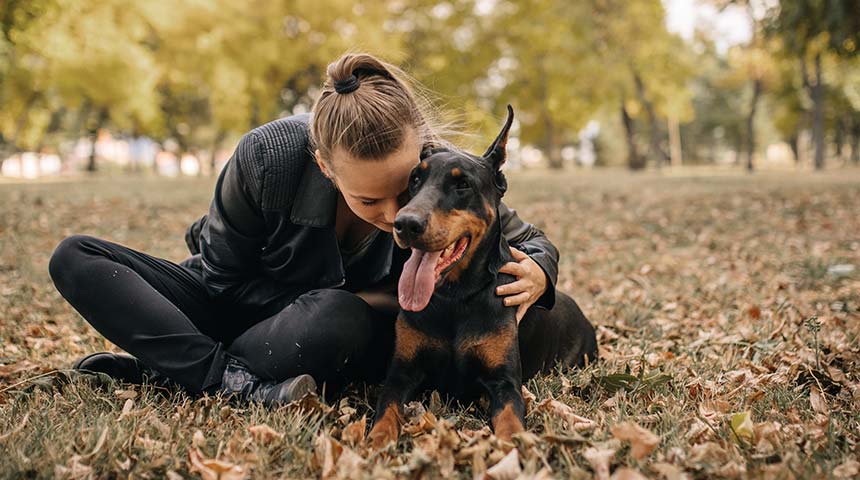
Canine parvovirus, commonly called "Parvo" is extremely contagious and debilitating. It severely affects puppies that have not been adequately vaccinated. The virus is mostly transmitted by infected excrement. For two weeks, a contaminated animal eliminates the virus in large quantities in its stools. However, the virus can persist in the environment for more than six months.
On average, symptoms can occur 5 days after exposure, and begin with weakness, loss of appetite and a high fever. Vomiting and diarrhea (often with blood) develop afterwards. Parvovirus causes serious damage to the intestinal mucosa and there can be bacteria absorption (blood poisoning). All these signs lead to important dehydration; in severe cases, the virus can cause shock and even death.
Some breeds seem to be more sensitive: Doberman, Rottweiler, Pitt Bull, Labrador and English Springer Spaniel.
If the veterinarian suspects that your animal suffers from Parvovirus, he/she will be able to obtain the diagnosis with the help of an Elisa test done on the stools. A blood test (hematology) can also help establish the diagnosis. Since the virus can affect the immune system, there are often very few white blood cells such as neutrophiles.
Unfortunately, there is no anti-virus treatment. Therefore, only support treatment is provided and will depend on the severity of the infection. Most dogs require an intravenous fluidotherapy for rehydration and injectable antibiotics. Fasting is important when the animal is vomiting; the use of antiemetics may be considered. In some severe cases, the loss of protein because of the profuse diarrhea requires a plasma transfusion or the intravenous administration of colloids. In general, symptoms can last from 4 to 7 days. An animal that recovers from Parvo should be isolated from other dogs for 3-4 weeks. Disinfection of the area and of contaminated objects with diluted concentrated bleach (1:30) is effective.
Female dogs that have acquired immunity from vaccination or from previous exposition transmit antibodies to their puppies through their milk. These antibodies protect the puppies for the first weeks, but afterwards, they must be vaccinated!
Therefore, vaccination is the best way to protect your dog against infection. Puppies should be vaccinated every 3 to 4 weeks until they are 16 weeks old.
If your pet requires cares that cannot be performed in your hospital, we will transfer its file to one of our internal medicine specialists working at the Centre Vétérinaire Rive-Sud or at the Centre Vétérinaire Laval.

